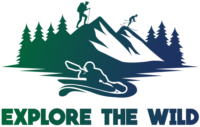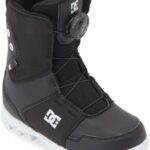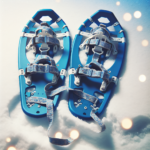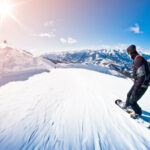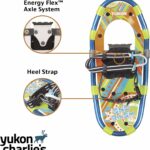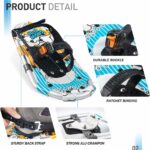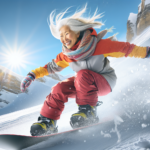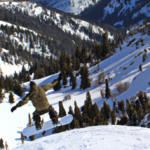Thinking of introducing your child to the thrilling world of snowboarding? Like any sport, it’s crucial to consider the appropriate age to get started. “What Age To Start Snowboarding?” is an article here to quench your curiosity and guide you with expert recommendations. It discusses the ideal age for your little ones to start snowboarding, the safety measures you should keep in mind, and how to make the overall experience enjoyable and beneficial for your child’s growth. It will help you put your concerns to rest and aid you in paving the way for your child’s exhilarating journey on the slopes.
Understanding the Basics of Snowboarding
Snowboarding is an enthralling and exhilarating sport that has been grabbing the attention of outdoor enthusiasts for quite a few years now. But before we delve into the specifics about when and how to introduce your kids to snowboarding, let’s first understand the basics.
Defining Snowboarding
By definition, snowboarding is a winter sport that involves descending a snow-covered slope on a snowboard – a flat board with bindings to secure the rider’s boots. It’s a sport that combines elements of surfing, skateboarding and skiing, and it’s played on snow-covered slopes during the winter season.
Popularity and Growth of Snowboarding
Having started in the USA in the 1960s, snowboarding has continually grown in popularity and now, it’s not just a recreational sport but also a major event in the Winter Olympic Games. The growth of snowboarding can be attributed to its thrill and adrenaline-pumping nature that appeals especially to young people.
Physical Demands Associated with Snowboarding
Snowboarding is physically demanding. It requires strength, endurance, flexibility, and a high level of motor coordination. It’s a whole-body workout that engages your lower body, core, and upper body. Therefore, anyone considering to start snowboarding must have a good level of fitness.
Factors to Consider Before Starting Snowboarding
Before introducing your child to snowboarding, there are important things you should consider.
Child’s General Physical Development
Most children develop the necessary strength, motor skills and balance for snowboarding around the age of six or seven. However, each child is unique and their development varies. It’s crucial to assess whether your child is physically ready before exposing them to this demanding sport.
Child’s Coordination and Balance
Snowboarding extensively requires good body coordination and balance. Therefore, a child’s ability to coordinate movements and maintain balance are crucial factors to consider before introducing them to the sport.
Level of Interest in the Sport
Your child’s interest in snowboarding is paramount. If they show genuine interest and enthusiasm, they are more likely to enjoy the sport and actually stick to it.
Availability of Equipment and Training
When deciding to introduce your child to snowboarding, consider if you have access to the necessary equipment and training resources. Does your location have snowboarding facilities? Are there experienced instructors around?
Ideal Age to Introduce Children to Snowboarding
Determining the right age to introduce kids to snowboarding can be tricky because children mature at different rates both physically and emotionally.
Opinions of Experts
Snowboarding experts generally agree that the proper age to introduce a child to snowboarding is around 7 years old. At this age, most children have developed the necessary physical strength, balance, and coordination needed.
Testimonies of Professional Snowboarders
Many professional snowboarders started the sport at tender ages, showing that it’s possible for children to excel in the sport.
Comparison with other Winter Sports
When compared with other winter sports like skiing, typically, children can learn to ski at a younger age than they can learn to snowboard. This is mainly because skiing doesn’t require as much balance and coordination as snowboarding.
Training Young Children for Snowboarding
When it comes to training children for snowboarding, safety and fun should be prioritized.
Safe and Child-Friendly Training Methods
There are numerous child-friendly methods to train young snowboarders. Initially, children should start with flat-ground training before moving to small slopes. The training should be simple and interesting so that the child can love the process.
Selecting Appropriate Snowboarding Gears for Kids
Safety gears are very important in snowboarding. Ensure that your child has a perfect fit helmet, high-quality snowboard goggles, snowboarding gloves, and an impact bib.
The Role of Parents and Coaches
As a parent, your support and guidance throughout the training process can be instrumental in your child’s snowboarding journey. Similarly, a good coach can make a great difference in your child’s skill development and safety.
Importance of Physical Fitness in Snowboarding
Physical fitness is crucial in snowboarding as it enhances performance and reduces the risk of injuries.
Body Parts Engaged in Snowboarding
Snowboarding is a full-body workout. It actively engages the core, legs, and arms. Training these areas can greatly help in enhancing your child’s snowboarding performance.
Fitness and Conditioning Routines for Young Snowboarders
Various fitness routines can help young snowboarders. These may include balance training, core strength exercises, flexibility training, and cardio workouts.
Nutrition and Hydration for Snowboarders
Snowboarders, just like any other athlete, should maintain proper hydration and follow good nutrition. Balanced meals that deliver adequate energy and hydration are essential, especially during active snowboarding days.
Safety Measures for Young Snowboarders
Considering the risks involved in snowboarding, safety measures are paramount.
Common Risks and Injuries in Snowboarding
Injuries can’t be completely avoided in snowboarding. The most common ones include wrist, shoulder, and head injuries.
Importance of Wearing Safety Gears
Safety gears not only minimize the impact of falls but also protect against unforeseen risks. An appropriate snowboarding helmet, wrist guards, and a spine protector are some of the crucial safety gears.
Teaching Children Essential Safety Rules while Snowboarding
Teaching your child safety rules helps ingrain a safety-conscious mentality in them. Always emphasize the importance of adhering to all safety measures and rules.
Progress and Development of Young Snowboarders
As your child continues to snowboard, assessing their progress can be important in determining how far they can go with the sport.
Benchmarking Children’s Progress in Snowboarding
Regular assessment of your child’s skill level, progress, and interest can guide you on how to improve their training and engagement with snowboarding.
Encouraging Fun and Enjoyment over Competition
While competition can be a great motivator, it’s crucial to emphasize that snowboarding is all about having fun, enjoying the sport, and developing oneself in the process.
Setting Realistic Expectations
Help your child set achievable goals at each stage of their snowboarding journey. Remember, it’s all about small steps leading to bigger leaps.
Managing Fears and Anxieties in Young Snowboarders
Fear and anxiety are natural when a child is starting a new sport like snowboarding.
Identifying Signs of Fear and Anxiety
Pay attention to your child’s behavior to notice any signs of fear or anxiety before, during, and after snowboarding sessions.
Boosting Children’s Confidence
Ensure your child feels safe during their snowboarding sessions. Encouragement, praise, and positive reinforcement can help to increase their confidence in the sport.
Strategies to Help Children Cope with Fears
Help your child understand that it’s perfectly okay to fall while learning. Equipping them with safety skills and knowledge can also reassure them, reducing fear and anxiety levels.
Benefits of Snowboarding at a Young Age
Starting snowboarding at a young age can offer numerous benefits.
Physiological and Health Benefits
Snowboarding offers a whole-body workout, enhancing physical strength, flexibility, and cardiovascular fitness.
Snowboarding can boost a child’s confidence, self-esteem, and resilience, as they learn to navigate through various challenges associated with the sport.
Development of Life Skills
Snowboarding can teach kids important life skills such as determination, patience, discipline, and goal setting.
Beyond the Sport: The Bigger Picture in Snowboarding
Snowboarding is not just about the sport. It goes way beyond offering a fun and physically engaging activity for your child.
Snowboarding as a Lifetime Sport
Snowboarding is one of the sports that you can enjoy for a lifetime. It promotes an active lifestyle and love for the outdoors.
Possible Career Opportunities
Snowboarding can open doors for various career opportunities such as being a professional snowboarder, a snowboarding coach, or even a snowboarding event organizer.
Impact on Tourism and Local Economy
On a broader scale, snowboarding contributes to local tourism and economy, especially in areas with snowfall.
Introducing your child to snowboarding can be a gratifying experience both for you as a parent and the child. It’s all about ensuring they are ready, keeping it fun, safe, and understanding that it’s a journey of progress and constant learning. Happy snowboarding!
- What Snowboard Bindings Should I Get? - January 23, 2024
- What Size Screws For Snowboard Bindings? - January 23, 2024
- How To Snowmobile On Water? - January 23, 2024
